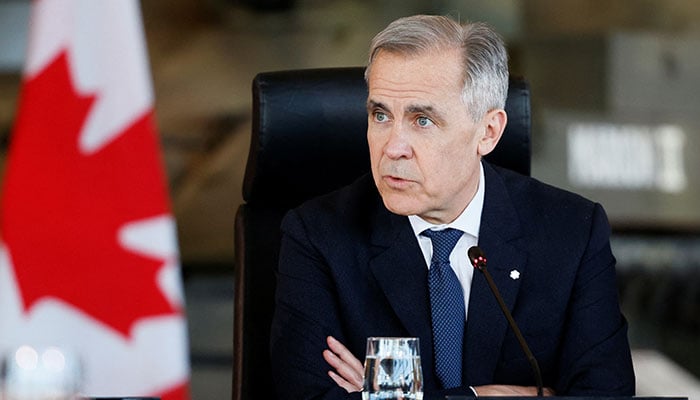- PM to move parliamentary elections to April instead of October.
- “It’s difficult to make predictions at this point,” warns expert.
- Domestic challenges like living costs and immigration dominate polls.
OTTAWA: Canada’s newly appointed Prime Minister Mark Carney is anticipated to announce early elections today (Sunday) in a bid to secure a stronger mandate as his nation navigates a trade dispute and territorial threats from U.S. President Donald Trump.
The centrist Liberal Party selected the former central banker to succeed Justin Trudeau as PM, but he has yet to face the larger Canadian electorate from a campaign perspective.
This situation will change on April 28, pending Carney’s announcement to push up parliamentary elections from October.
Government sources informed AFP that he will reveal his decision at 12:30 PM local time in a speech to the 41 million Canadians.
After a decade in power, the Liberal government had faced plummeting approval ratings, but Carney aims to leverage a surge of Canadian nationalism against Trump’s provocative actions.
Trump has frustrated Canada by frequently undermining its sovereignty with comments suggesting the country should become the 51st state.
His confrontational remarks have coincided with a trade war, featuring tariffs on Canadian imports that threaten to devastate its economy.
“In this moment of crisis, the government requires a strong and unequivocal mandate,” Carney stated to supporters on Thursday in Edmonton.
Key Issues
Domestic concerns, particularly living costs and immigration, typically shape Canadian elections, but this year a defining issue is how best to contend with President Trump.
Trump’s belligerent stance towards Canada—one of the U.S.’s closest allies and a fellow NATO member—has dramatically shifted the political landscape in Canada.
Trudeau, who had held office since 2015, became significantly unpopular before announcing his resignation, with Pierre Poilievre’s Conservatives recently viewed as the frontrunners.
Yet, under Carney’s leadership, the polls have considerably tightened, leading analysts to deem the upcoming race—as influenced by Trump—as too close to predict.
“Many view this as a crucial election, one without precedent,” remarked Felix Mathieu, a political science expert at the University of Winnipeg, to AFP.
“At this stage, making forecasts is impossible, but this election is sure to draw close scrutiny, and voter turnout is expected to rise.”
Poilievre, aged 45, is a seasoned politician who first entered office at 25. Often seen as a libertarian and populist, he has earned a reputation as a hard-hitting campaigner.
Conversely, Carney, who is 60, has spent most of his career outside electoral politics, having worked for over a decade at Goldman Sachs and served as the governor of the Bank of Canada before taking the reins of the Bank of England.
Smaller political parties may struggle if Cana’sians choose to favor one of the two major parties, hoping to grant a stronger mandate to counter Trump.
As for Trump, he claims indifference, continuing to develop plans for imposing additional tariffs on Canada and other trading partners starting April 2.
“I don’t care who wins up there,” Trump stated this week, adding, “Before I got involved and changed the election—though I don’t care about that—the Conservatives had a 35-point lead.”




